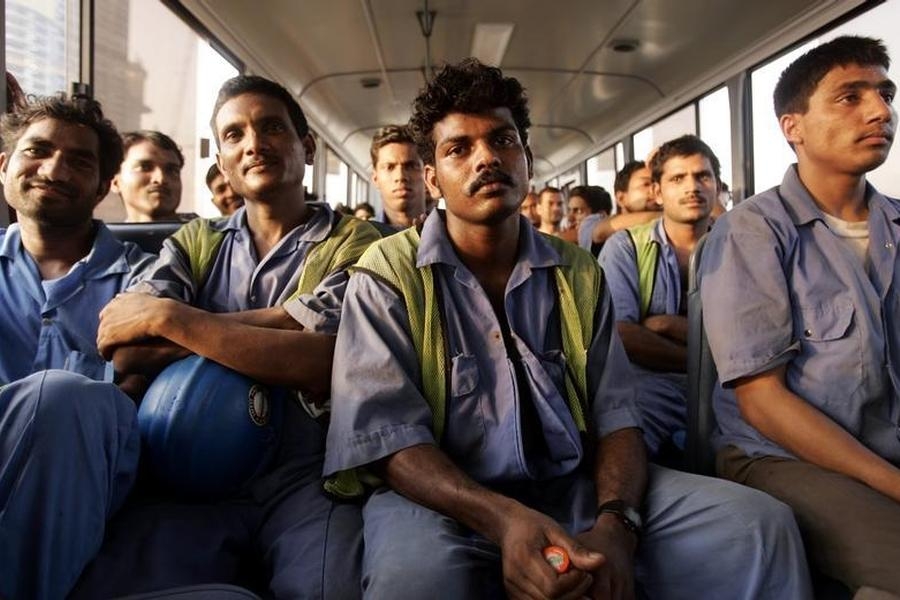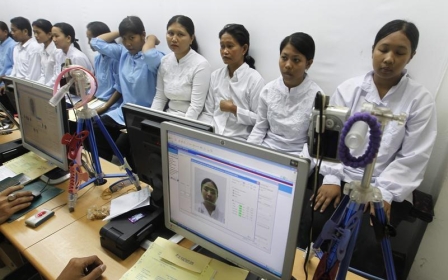'Second-class citizen': India's Gulf workers to get colour-coded passports

India has been accused of worsening the plight of expatriate workers in the Gulf, by singling out poorly educated citizens with a new colour-coded passport.
India's government has moved to issue all Indians who need "emigration clearance" to work overseas - mainly those with no formal qualifications - with orange passports, while those who need no checks will continue with blue.
The Indian government introduced additional screening in 1983 for those most at risk of exploitation overseas, and identified those needing "clearance" on the last page of their passports.
The moment an orange passport holder lands in a foreign country, he will be treated with disdain
- Oommen Chandy
Oommen Chandy, former chief minister of the southern state of Kerala, where many migrant workers originate, criticised the new rules.
"If this becomes a reality, the moment an orange passport holder lands in a foreign country, he will be treated with disdain," Chandy told the Washington Post.
"It will have a telling impact on such people's character and individuality and should not happen at all."
India's foreign ministry defended the new passport and said it would help Indian officials separate people who require additional vetting before they travelled to certain countries.
Indian officials also stressed that the new passports would help prevent human trafficking and allow border guards to easily distinguish citizens who required extra checks.
But critics of the plans have raised concerns that the move will deepen discrimination faced by labourers, both locally and abroad in the Gulf.
Rahul Gandhi, the leader of the opposition Congress party, also condemned the move on Twitter and said that Indian workers would be treated like "second-class citizens".
Despite a booming economy, India continues to be one of the world's most unequal societies and exports millions of workers to the Gulf.
The government has not released any other details of the plan, including a timeline for implementation.
“The government could argue that these passports are for the workers’ protection, but to a worker, it may not seem that way,” said Sehjo Singh, a director at advocacy group ActionAid India.
“The government must make clear how this system will work in favour of the workers.”
India is the largest exporter of migrant workers globally. There are an estimated six million Indian migrants who work in the six Gulf states of Bahrain, Qatar, Saudi Arabia, UAE and Oman.
Over the years, the Indian government and non-governmental groups have received a steady stream of complaints from migrant workers, ranging from non-payment of wages to torture and abuse.
Last year, the government created a resource centre to help overseas workers in the Gulf. The centre included a 24-hour helpline for Indians who faced issues while working in the Gulf.
New MEE newsletter: Jerusalem Dispatch
Sign up to get the latest insights and analysis on Israel-Palestine, alongside Turkey Unpacked and other MEE newsletters
Middle East Eye delivers independent and unrivalled coverage and analysis of the Middle East, North Africa and beyond. To learn more about republishing this content and the associated fees, please fill out this form. More about MEE can be found here.




